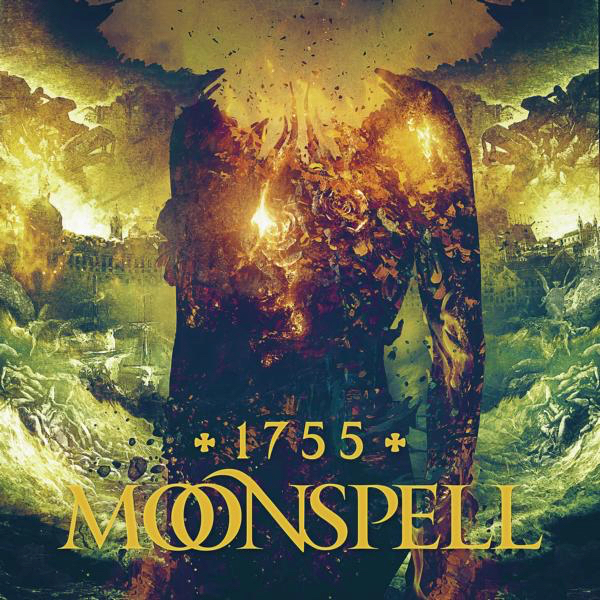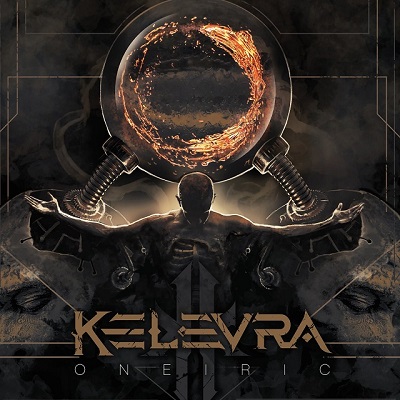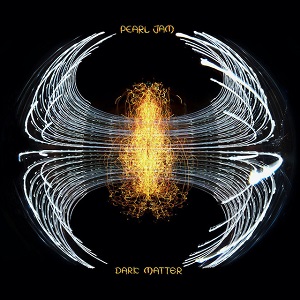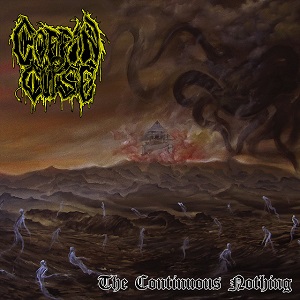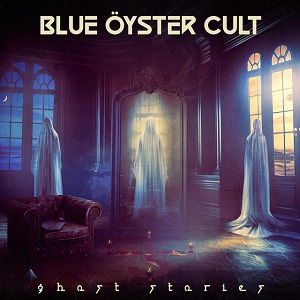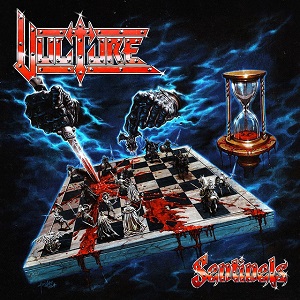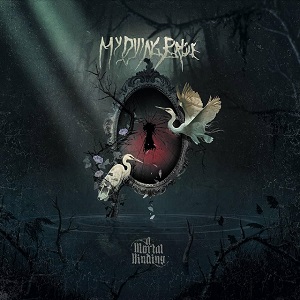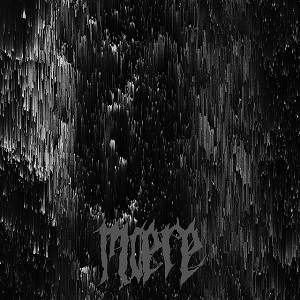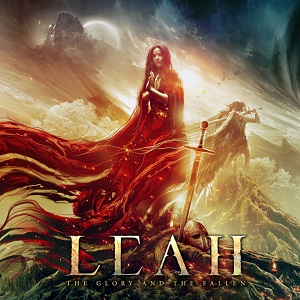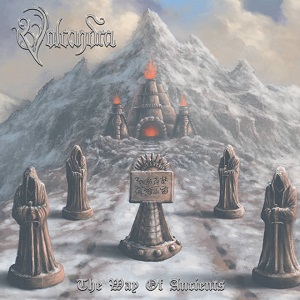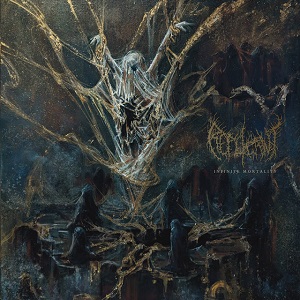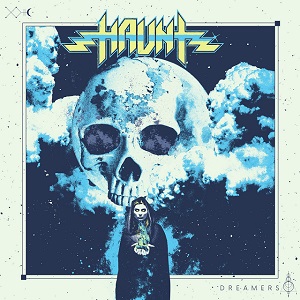MOONSPELL – Tongue Twisted
November 15, 2017, 6 years ago
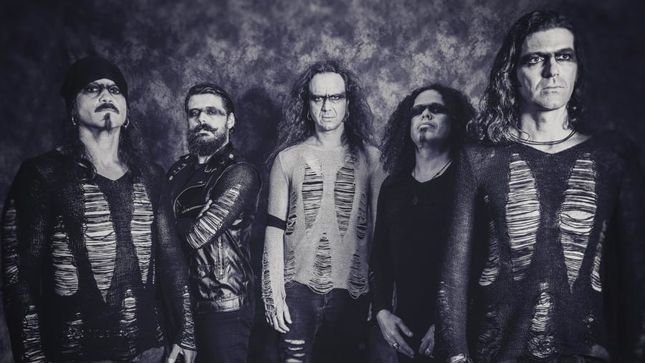
When it comes to Portuguese metal veterans Moonspell, their fans are more likely to be dedicated to specific albums than a specific era of the band's history. From the 1995 debut Wolfheart to their latest pounding, 1755, each of Moonspell's 11 studio albums offers up something slightly different / off-kilter from its predecessor. Whether it's strains of goth, doom, black metal or a hybrid of something in between, the band has grown and evolved for better or worse over time depending on which albums you're faithful to. Previously having only flirted with presenting songs in their native tongue, 1755 marks Moonspell's first ever album sung completely in Portuguese and a project that was long overdue. A concept album epic, it tells the story of the earthquake that decimated Lisbon - considered the greatest natural disaster ever to occur on European soil - and the city's literal rebirth from the ashes. 1755 was a labour of love for frontman Fernando Ribeiro, as every Moonspell album is, as well as a journey of discovery with regards to his skills as a songwriter and a singer.
Discussing Moonspell's constant sonic evolution, the Extinct album from 2015 sounds like a goth rock record up against 1755. The new one is a crushing assault in comparison, as one would expect given the theme; all of it fire and brimstone and assorted bits of hell with symphonic nuances that are somehow distinctly Moonspell.
"It's very important that we feel good about ourselves when we release an album, and when we have a 25 year career that continues to grow it's important to make and keep that creative vow," Ribeiro says of the band's ever-flowing sound. "We have a common goal, a project, a concept, and that's really what keeps everything in motion. There was some material that we wrote for 1755 that we didn't use, but we might pick that up for our next album. We've kind of always entertained the idea of doing an album in Portuguese, and we've been waiting for the right time and the right concept."
"The decision to do 1755 in Portuguese has a lot to do with wanting to be as close as possible to making the concept genuine. It was a big tragedy, but the concept is also about how Portugal rebuilt itself and became fully functional again. I can't really explain why we chose to do this now, but as a musician I think it's best not to overthink it. Sometimes inspiration is right in front of your nose but you don't see it because you're caught in a cloud of emails and business things and daily life. This is an album for the sake of the history and for the music. I'm really happy about having done this album now."

It turns out that Portuguese is a very metal friendly language, expressive and effective on several levels over the course of 1755.
"Then I guess we did a great job (laughs). I guess part of it is because I'm from Lisbon, where we use 'x' instead of ‘s’ in certain words, which makes it more brutal in this context, I guess. It worked well in the dynamics of 1755 because of the dialect I have. And because of the concept of 1755 it's the music that paints the picture. If we'd had a different concept the music definitely would have been different. For me, 1755 is not a one-off project because Portuguese history is long and eventful, and I believe we may have found a new way of expressing ourselves. You've known Moonspell since 1996, you've seen us grow and change, and the important thing is that we don't want to be young again. We want to be meaningful to the fans, and being meaningful doesn't mean social networking. I respect that there is a time and place for that, but I would rather make quality music that makes people think, makes people wonder what the fuck 1755 is (laughs). The new album is a statement, this time in Portuguese, to give people the message of why Moonspell is still around and still relevant."
In this day and age of metal, only the narrow-minded will be weirded out by a band using a language other than English to bring their art to life.
"I don't think it was ever considered weird in metal when bands sang in other languages," Ribeiro offers. "There's never been a real language barrier, especially when you look back on the Norwegian, Swedish and Finnish bands that started turning up in the '90s. It's normal for bands to sing in their native language if they choose to, and it's accepted. I think it's a mentality that has changed and evolved over time, and I think metal fans are open to new experiences. When you don't understand a word of what's being said in the song you open up more and end up paying more attention to the music, which is awesome. As a vocalist I'm willing to pay the price for keeping the concept as genuine as possible (laughs)."
Ribeiro agrees it will prove interesting when Moonspell brings songs like "In Tremor Dei" and "Todos Os Santos" to the stage in non-Portuguese speaking countries and having the fans singing along word for word. Perhaps not as odd as non-German speaking Rammstein fans bellowing along with lyrics about necrophilia, incest and cannibalism, but still...
"They already sing the lyrics wrong anyway," Ribeiro laughs. "But yeah, I'm actually curious about that. It will be a more theatrical show because we want to bring the concept onto the stage, but I think nowadays we surprise the fans more with our music than they can surprise us back (laughs). Some fans will be really keen on the new songs and having that experience, others will bitch about us not playing only the old stuff or not keeping the sound the same as it was for Extinct. I think it's quite predictable that our stuff isn't going to be consensual, but I think we're in a better place than a lot of bands because we have nothing to lose."
"When musicians say 'I don't think about the audience when I write music...' I don't think that's entirely true, but what the audience tells the musician is the truth. They're not going to follow an artist blindly... and this is metal, so people have to bitch about something (laughs)."
Writing and recording songs in Portuguese was a relatively new experience for Ribeiro, particularly when it came to singing his parts. It was also less taxing than his usual creative process for writing in English.

"I'm not a native English speaker so obviously I've encountered difficulties over the years writing lyrics. I've learned how to improve my diction, my phrasing because you can't simply translate what I write in Portuguese to English... that never works. I taught myself that when I'm going to write English lyrics, I think in English to the best of my ability and I do any research in English so I can expand my vocabulary. Having said that, I felt very comfortable singing in my own language, especially when it came to expressing myself. I wanted to have a sense of desperation in my voice because of this idea of running through the ruins of the earthquake, questioning the living, questioning the dead, questioning God... I discovered that I can get very angry and be very expressive in Portuguese (laughs). My wife told me that I sounded so desperate, and I told her I wanted the fans to imagine it as if it was my own experience of doubt, loathing of God, confusion, my survival instinct kicking in... so I think it was a great thing to write the lyrics in Portuguese. I really enjoyed writing and singing in Portuguese, and if there was a concept about France I wanted to touch on, for example, I would want to write and sing in French."
Ribeiro confirms any suspicions that Moonspell will perform 1755 in its entirety somewhere down the road. Nothing is planned as yet, but the conceptual nature of the album is pulling the band in that direction.
"Honestly, I've been thinking more and more about that, and we have nothing to lose, especially since we did shows in Europe for our 25th anniversary where we played Wolfheart and Irreligious in their entirety. I think we should play as much of 1755 as we can and not worry about whether the language works or anything like that. So yeah, I definitely think that will happen at some point."
"This album is an experience, so I think the theatrical side of Moonspell has to be underlined here," he adds. "We're bringing a bit of the 18th century to the stage on the next tour; the way we are dressed, stage props, to try and recreate some of that 1755 feel visually. I think the visuals are more important than ever for Moonspell."
